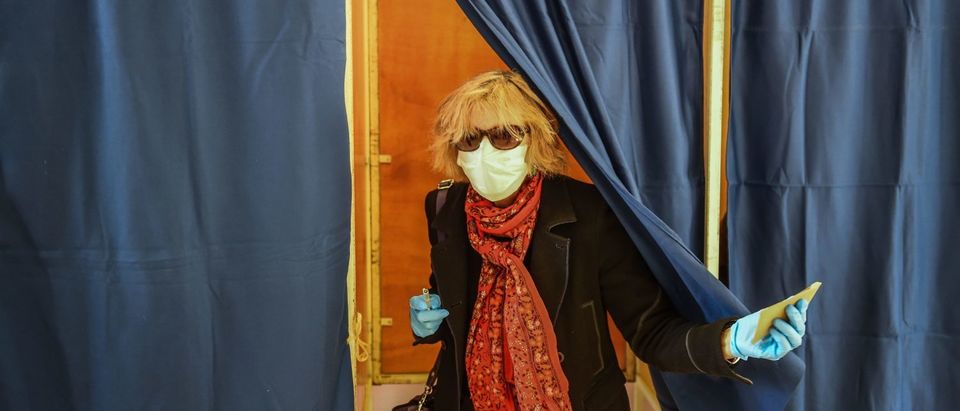Editor’s note: We endeavor to bring you the top voices on current events representing a range of perspectives. Below is a column arguing that remote voting is a viable alternative to in-person voting in order to prevent the spread of the coronavirus. You can find a counterpoint here, where Harlan Hill argues that remote voting is too susceptible to voter fraud to be a safe alternative to in-person voting.
Voting counts, and that’s why counting votes really matters.
The most important aspect of American citizenship is the right to vote, to choose the men and women who will lead and govern us. Voting is the very essence of our democracy.
For at least 20 years, we’ve experienced periodic problems involving our national elections: hanging chads in 2000, frequent lawsuits claiming improper gerrymandering (by both political parties), alleged voter-suppression activities, “walking around” money and most recently, allegations of foreign intervention.
The Internet and social media only complicate matters by offering portals for unscrupulous, mischievous and hate-filled hackers and others to ply their trades by spreading misinformation. George Orwell warned about such behaviors over 70 years ago. In a free society with a constitution that encourages and protects free speech, we will always have to be on guard against undue influences.
One good way to prevent such influences is to follow a cardinal rule of investing: diversify your portfolio. Make sure that you gather news from multiple, reliable sources. As is sometimes the case with a stock tip, if something sounds implausible or too good to be true, it probably is. So beware.
Taking politics out of elections, however, is impossible. Politics, after all, is what elections are all about. What matters most is that when the election results are tallied, the American public has confidence in the safety, security, and integrity of our voting process. Efforts aimed at undermining the integrity of our elections are also directed at weakening the strength of our democracy and our economy, both of which are driven by millions of choices by individual citizens.
The situation is different in many authoritarian nations where voting may be encouraged but doesn’t really matter. The fix is in, and, as we’ve seen most recently in China and Russia, Xi Jinping and Vladimir Putin have rammed through governing changes that come awfully close to ensuring their lifetime tenure.
The coronavirus pandemic is already affecting this year’s American political contests. Several states still have primaries that must be held, and Congress (most pressingly right now in the House) is considering rule changes that might permit “low tech remote voting,” or even the use of proxy votes.
As is the case with the pandemic’s overall health and economic impact, it is still too soon to know how the virus will shape our political future. But right now, we have roughly six months to prepare for the November elections.
Governors in each of the remaining primary states will most likely (and should) allow primary voting to continue following the guidelines of social distancing. Time permitting, they might even consider new voting-by-mail procedures (perhaps expanding absentee-voting practices that exist already). It’s better to ensure ample voting opportunities and a careful vote count than to rush, cut corners and have the results questioned.
The larger, looming issues relate to what happens this November. Since 2016, state election officials have been focused on addressing safety and security concerns. The consensus appears to favor paper ballots (either directly or as backup records for electronic voting machines) that will be beyond challenge if something goes wrong mechanically. However, expanded absentee ballots or remote voting is and should be a viable option for the upcoming election.
Maryland’s Republican Governor Larry Hogan, this year’s Chair of the National Governors Association, has been a pragmatic state and national leader in addressing the pandemic. He must be doing something right to enjoy a remarkable 84 percent approval for his handling of the crisis in a heavily Democratic state.
This summer or early fall, Hogan should convene his fellow governors and their chief state elections officials. Together, they can prepare for November 3 by announcing their individual and collective efforts to ensure the integrity of this year’s elections.
There are plenty of technical issues that the governors can also address, in addition to efforts to “game” the system through efforts to bundle votes, suppress turnout, mislead voters or allow foreign interference to go unchecked.
We should encourage every American to vote, ensure that barriers to voting are eliminated and also guarantee that our election mechanics are safe, secure and reliable.
Turnout this year is expected to be heavy. We should not let the pandemic preclude or impact an election anywhere in the country. Let us hope that our nation is back to normal by election day. At the same time, we should be prepared for a possible second wave of viral infections.
Because every vote counts, every vote must be counted. There’s still time to get this fall’s elections right.
Charles Kolb served as Deputy Assistant to the President for Domestic Policy from 1990-1992 in the George H.W. Bush White House


